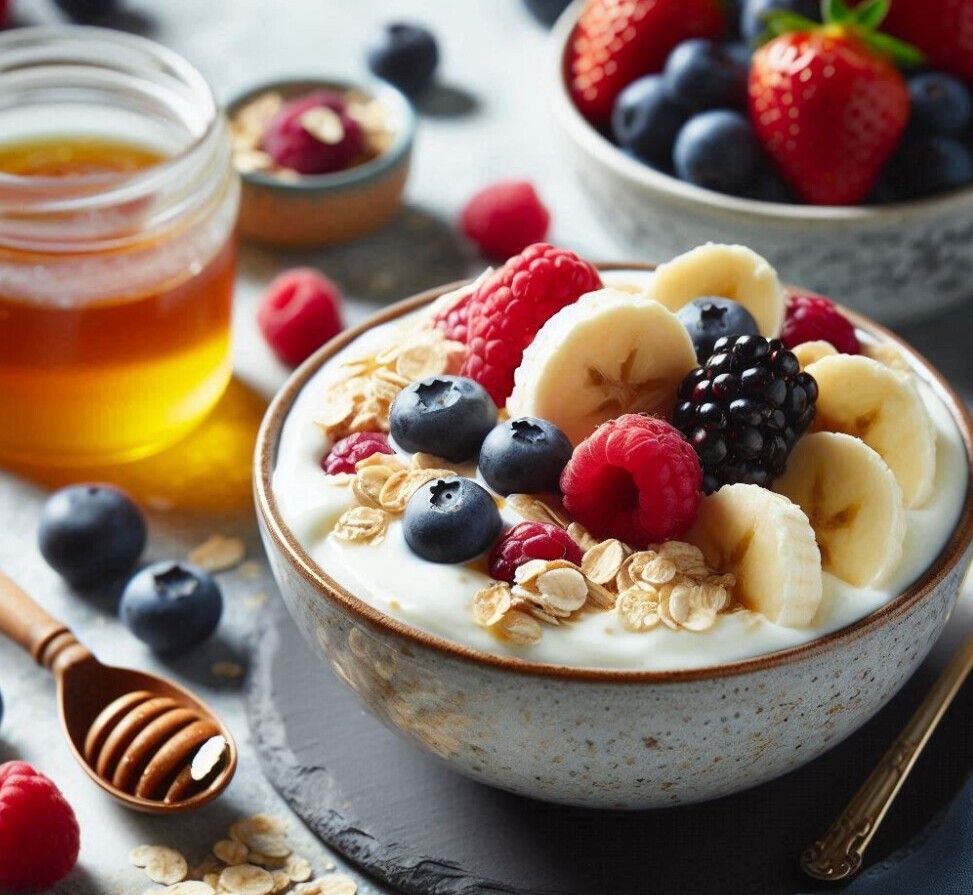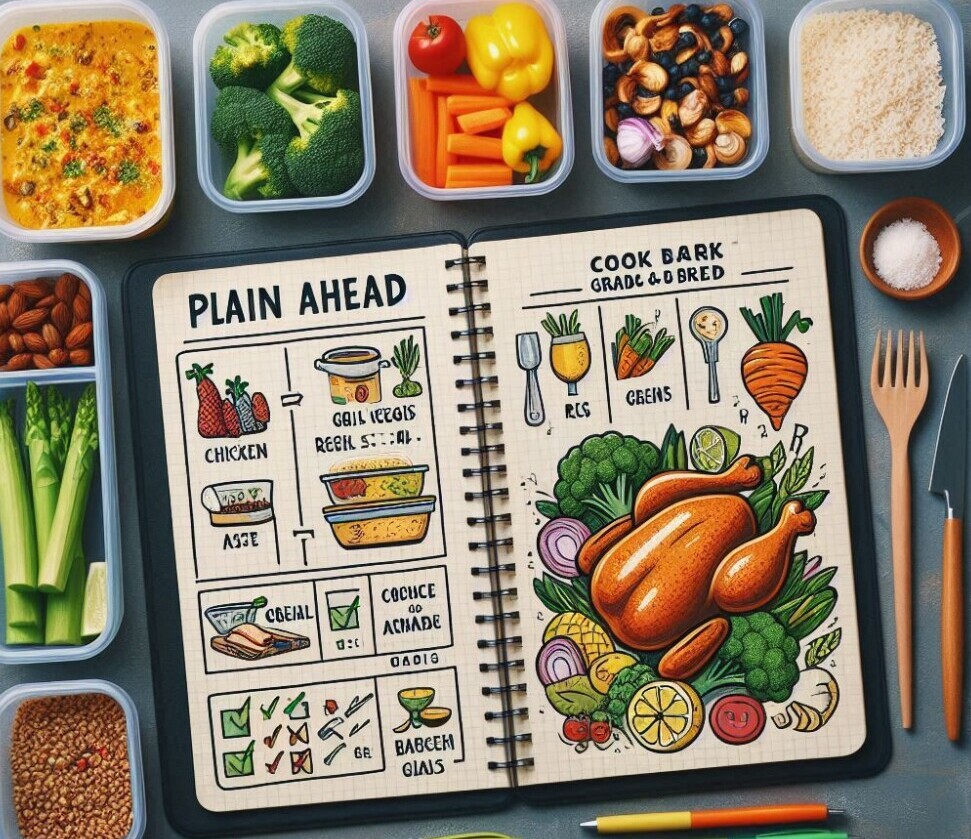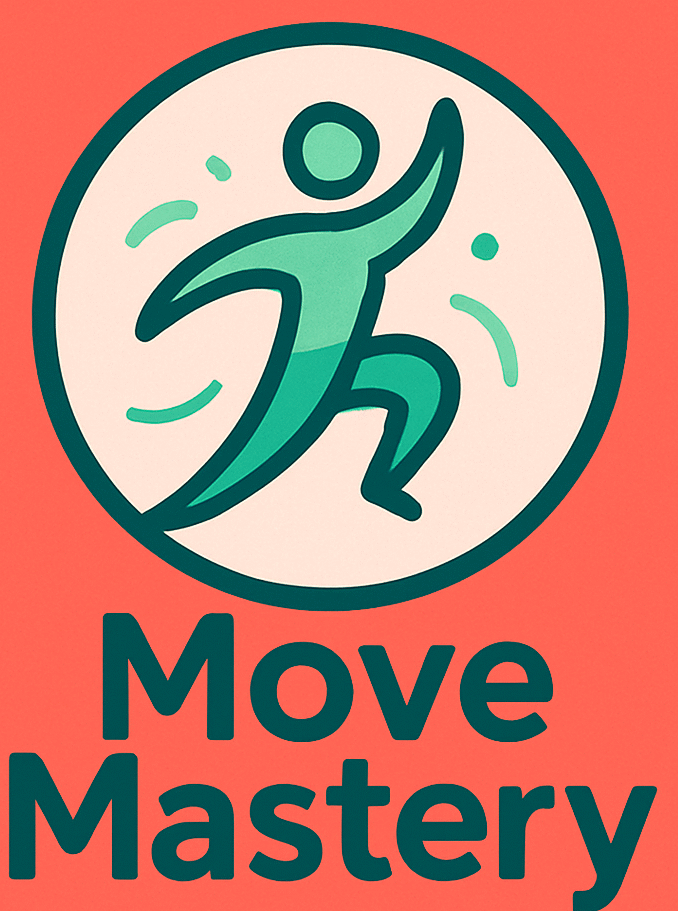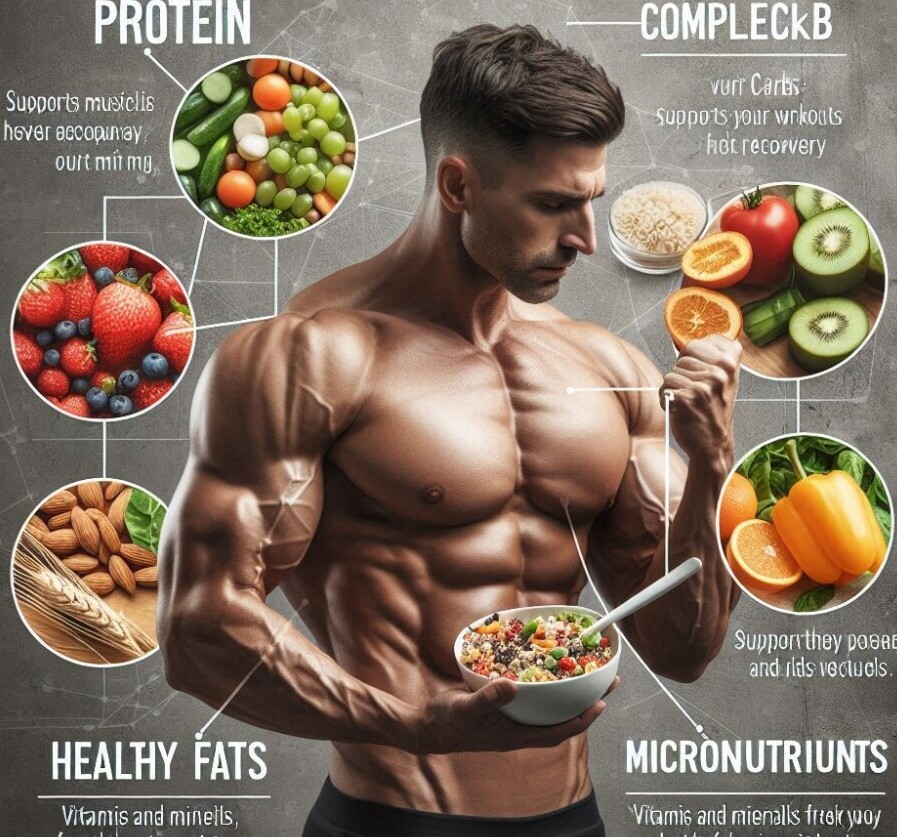📌 Introduction: Why Nutrition Matters in Bodyweight Training
Bodyweight training is a powerful way to build functional strength, improve mobility, and boost overall fitness—without the need for expensive gym equipment. But exercise alone isn’t enough to deliver the results you want. Nutrition plays a critical role in supporting your workouts, aiding recovery, and helping you meet your goals, whether that’s building muscle, losing fat, or simply staying lean and strong.
A well-designed meal plan provides the fuel your body needs to power through tough sessions and recover effectively afterward. In this guide, we’ll show you exactly how to create a nutrient-rich meal plan tailored to your bodyweight training routine.
📌 Understanding Macronutrients: The Role of Proteins, Carbohydrates, and Fats
To get the most out of your bodyweight training, you need the right balance of macronutrients:
✅ Proteins: Crucial for repairing and building muscle tissue. Sources include lean meats, fish, eggs, dairy, legumes, and plant-based alternatives like tofu or tempeh. Aim for 0.7–1 gram of protein per pound of body weight, depending on your goals.
✅ Carbohydrates: Your primary energy source. Complex carbs like whole grains, fruits, and vegetables provide sustained energy and replenish glycogen stores. They’re essential if you want to push hard during workouts.
✅ Fats: Necessary for hormone production, nutrient absorption, and long-lasting energy. Focus on healthy fats from avocados, nuts, seeds, olive oil, and fatty fish.
Balancing these macronutrients helps you perform better, recover faster, and maintain a healthy body composition.
📌 Building Balanced Meals for Bodyweight Training
A balanced meal should include:
- Protein: Supports muscle repair and growth.
- Complex Carbs: Fuels workouts and aids recovery.
- Healthy Fats: Supports overall health and satiety.
- Micronutrients: Vitamins and minerals from fruits and vegetables to keep your body functioning at its best.
Sample Balanced Meal:
- Grilled chicken breast (protein)
- Quinoa or brown rice (complex carbs)
- Steamed broccoli and carrots (micronutrients)
- Avocado slices (healthy fats)
By structuring your meals with these components, you ensure your body gets everything it needs to perform and recover optimally.
📌 Pre-Workout Nutrition Tips: Fueling for Performance
Eating the right foods before training ensures you have the energy to power through tough bodyweight workouts.
✅ When to eat: 60–90 minutes before your session.
✅ What to eat: A mix of easily digestible carbs and some protein, with minimal fat to avoid digestive slowdown.
Examples:
- Greek yogurt with berries
- Banana and a scoop of whey protein
- Oatmeal with a splash of almond milk and honey

Proper pre-workout nutrition stabilizes blood sugar and gives you sustained energy so you can maximize every rep.
📌 Post-Workout Recovery: Timing and Nutrient Intake
After your workout, your body is primed to absorb nutrients to kickstart the recovery process.
✅ Timing: Aim to eat within 30–60 minutes post-workout.
✅ What to eat: A combination of protein to repair muscle and carbs to replenish glycogen.
Examples:
- Grilled salmon with roasted sweet potato
- Protein shake with a banana
- Turkey wrap with whole-grain tortilla and veggies
This helps reduce muscle soreness, speed up recovery, and prepare you for your next session.
📌 Hydration Essentials: Stay Hydrated for Maximum Effectiveness
Hydration is often overlooked but is essential for anyone training seriously. Even slight dehydration can reduce performance, cause cramps, and slow recovery.
✅ How much: At least 8–10 cups (2–2.5 liters) of water per day as a baseline, more if you’re sweating heavily.
✅ When to drink: Sip throughout the day and ensure you drink before, during, and after workouts.
Bonus: Add electrolyte-rich drinks or foods (like coconut water, oranges, or a pinch of salt in water) if you’re training intensely or in hot environments.
📌 Meal Prepping Strategies: Consistency Made Easy
Meal prepping helps you stay consistent, save time, and avoid unhealthy last-minute choices.
✅ Plan Ahead: Create a weekly menu with balanced meals.
✅ Batch Cook: Grill chicken, roast veggies, cook grains in bulk.
✅ Use Containers: Portion meals in advance so they’re grab-and-go.
✅ Variety: Change spices, sauces, and side dishes to avoid boredom.

Meal prepping ensures your nutrition stays on point even on your busiest days.
📌 Adjusting Meal Plans Based on Your Goals
Your meal plan should be tailored to your specific goals:
✅ Muscle Gain:
- Increase overall calories, especially from protein and carbs.
- Eat 4–6 balanced meals per day to maintain an anabolic environment.
✅ Weight Loss:
- Slight calorie deficit (~200–500 fewer calories daily).
- Emphasize high-protein, high-volume meals to stay full with fewer calories.
✅ Maintenance/General Fitness:
- Eat at maintenance calories with balanced macronutrients.
- Focus on variety to ensure micronutrient coverage.
Remember: Nutrition isn’t one-size-fits-all. Track progress and make small adjustments as needed.
📌 Conclusion: Fuel Your Bodyweight Training for Success
Bodyweight training is a powerful, accessible way to build strength, mobility, and overall fitness—but without the right nutrition, you’ll limit your results.
By understanding macronutrients, planning balanced meals, timing pre- and post-workout nutrition, staying hydrated, prepping meals efficiently, and adjusting your plan to your goals, you set yourself up for real, sustainable success.
Start today by designing a meal plan that fuels your body and supports your training goals. Your future self will thank you!
✨ Bonus Tip: Download a free meal planning template or talk to a registered dietitian to customize your plan even further!

